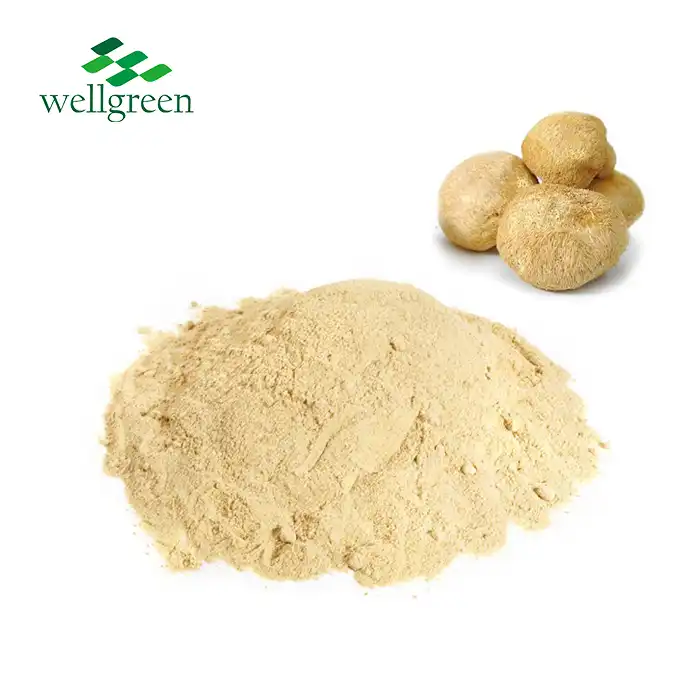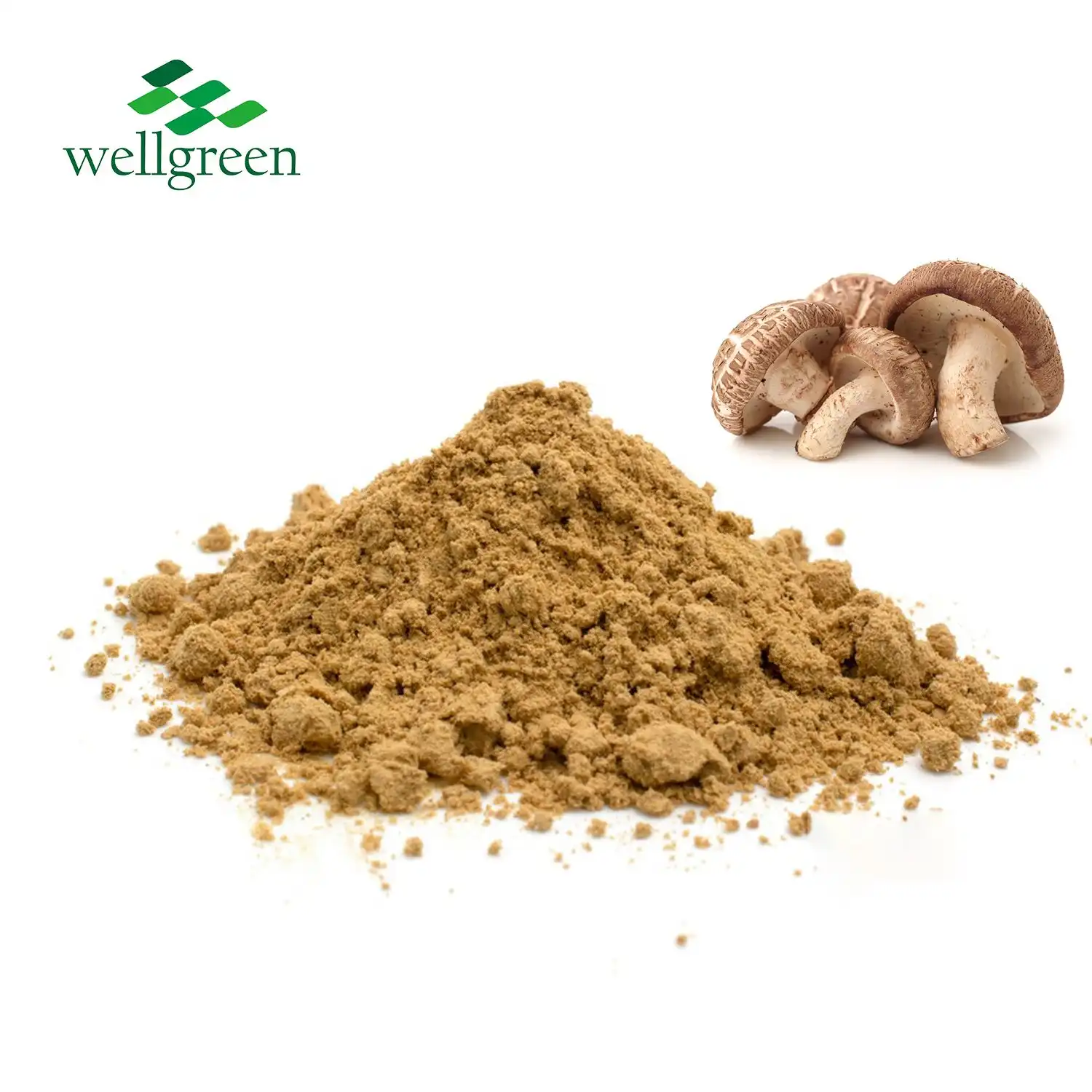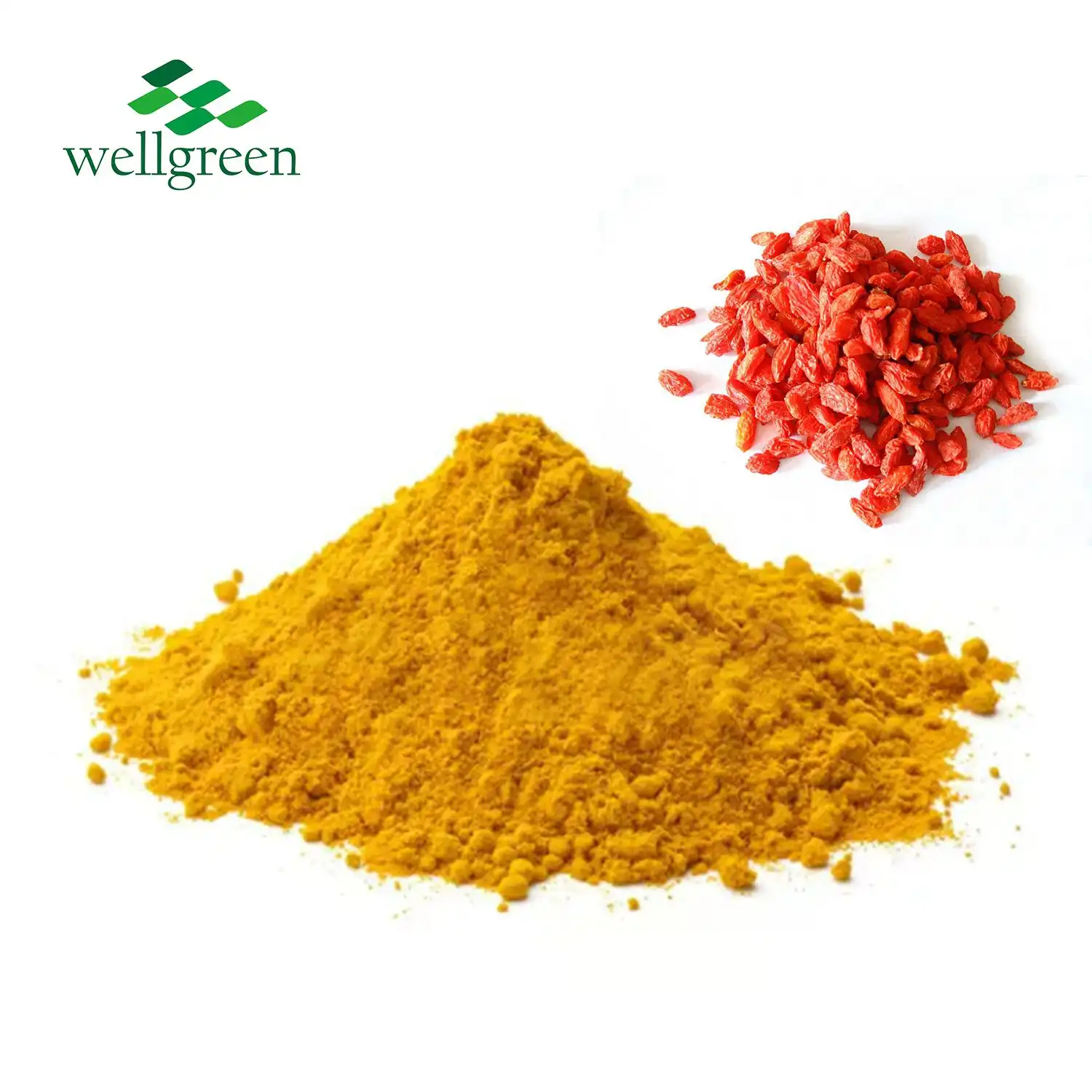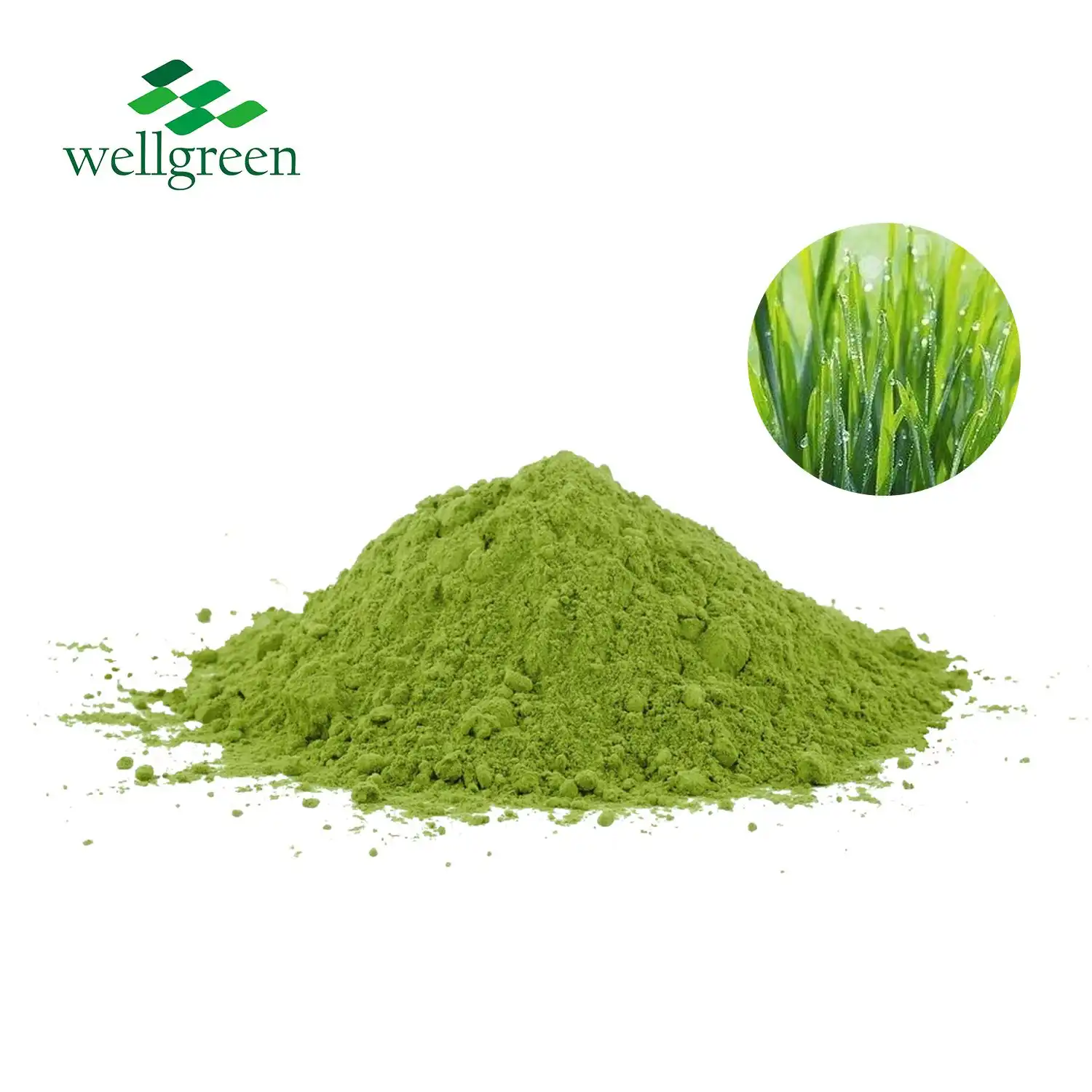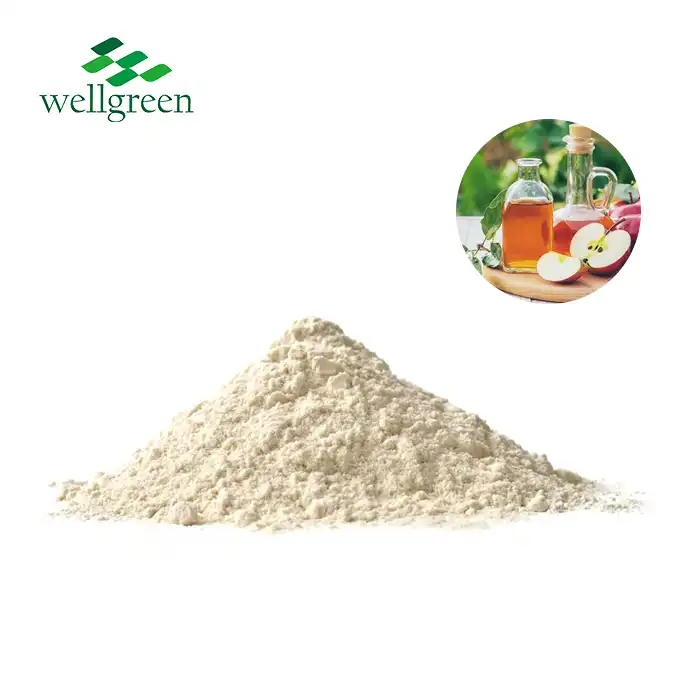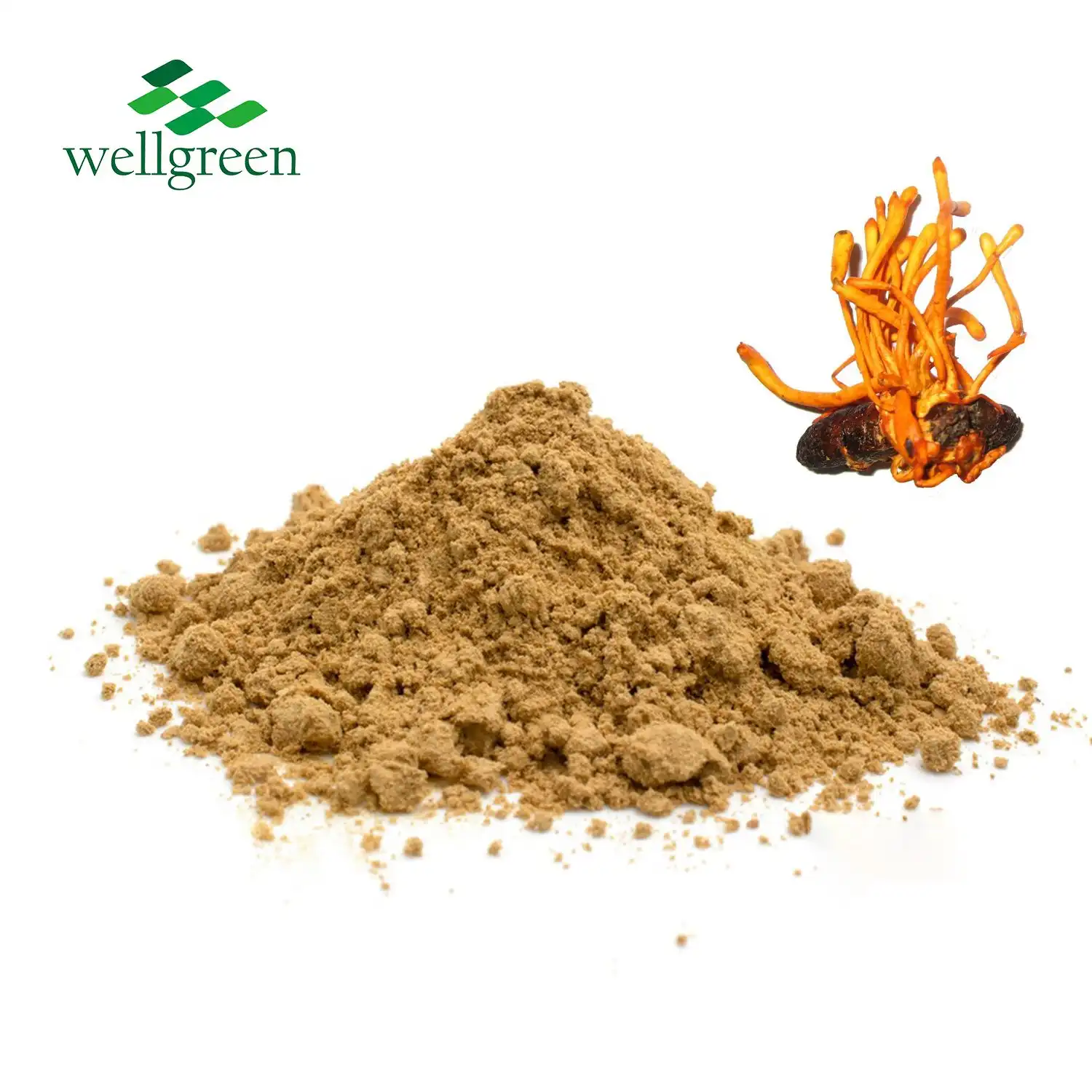Is bamboo leaf extract anti inflammatory?
2025-04-29 13:45:11
Yes, bamboo leaf extract is indeed anti-inflammatory. This natural compound, derived from the verdant foliage of bamboo plants, is rich in bioactive elements like flavonoids, phenolic acids, and polysaccharides, which have been shown to mitigate inflammation in the body. These constituents work by inhibiting the production of pro-inflammatory cytokines and enzymes, thereby reducing swelling, redness, and discomfort associated with inflammatory conditions. Bamboo leaf extract powder is often harnessed in supplements and functional foods for its potential to alleviate symptoms of chronic inflammation, making it a sought-after ingredient in the realm of natural health solutions.
The Science Behind Bamboo Leaf Extract and Inflammation
The allure of bamboo leaf extract lies in its potent composition, which offers a natural approach to combating inflammation. Let's delve into the mechanisms and benefits of this botanical marvel, exploring why it has garnered attention in the health and wellness sphere.
Unpacking the Bioactive Compounds in Bamboo Leaf Extract
Bamboo leaf extract is a treasure trove of bioactive compounds, each contributing to its anti-inflammatory prowess. Flavonoids, a class of polyphenolic compounds, are abundant in bamboo leaves and are renowned for their antioxidant and anti-inflammatory properties. These molecules neutralize free radicals, which are unstable atoms that can trigger oxidative stress and exacerbate inflammation. Phenolic acids, another key component, further enhance the extract's ability to quell inflammatory responses by modulating pathways that govern cytokine production. Polysaccharides, complex carbohydrates found in bamboo stem and leaf extract, also play a pivotal role by bolstering immune function and reducing systemic inflammation.
How Bamboo Leaf Extract Targets Inflammatory Pathways?
Inflammation is the body's natural response to injury or infection, but when it becomes chronic, it can lead to a host of health issues. Bamboo leaf extract powder intervenes by targeting specific inflammatory pathways. Research indicates that its bioactive compounds inhibit the activity of enzymes like cyclooxygenase (COX) and lipoxygenase (LOX), which are responsible for producing inflammatory mediators such as prostaglandins and leukotrienes. By curbing these enzymes, bamboo leaf extract helps to alleviate symptoms like swelling, pain, and redness. Additionally, the extract downregulates the expression of nuclear factor-kappa B (NF-κB), a protein complex that orchestrates the inflammatory response, thereby promoting a state of equilibrium in the body.
Evidence from Scientific Studies on Anti-Inflammatory Effects
The anti-inflammatory potential of bamboo leaf extract is not merely anecdotal; it is substantiated by scientific inquiry. Studies have demonstrated that the extract can significantly reduce markers of inflammation in cellular and animal models. In one investigation, bamboo leaf extract was shown to decrease the production of tumor necrosis factor-alpha (TNF-α), a cytokine implicated in chronic inflammatory diseases. Another study highlighted its efficacy in ameliorating symptoms of arthritis, a condition characterized by joint inflammation. These findings underscore the therapeutic promise of bamboo stem and leaf extract as a natural remedy for inflammation-related ailments, positioning it as a valuable asset in the health industry.
Health Benefits of Bamboo Leaf Extract Beyond Inflammation
While its anti-inflammatory properties are a cornerstone of its appeal, bamboo leaf extract offers a panoply of additional health benefits. This versatile botanical extract is a boon for overall wellness, making it a compelling ingredient in natural health products.
Antioxidant Powerhouse for Cellular Protection
Bamboo leaf extract is a formidable antioxidant, safeguarding cells from the deleterious effects of oxidative stress. The flavonoids and phenolic compounds within the extract scavenge free radicals, preventing cellular damage that can lead to premature aging and chronic diseases. This antioxidant capacity is particularly beneficial for skin health, as it helps to mitigate the effects of environmental stressors like UV radiation and pollution. By incorporating bamboo leaf extract powder into dietary supplements or topical formulations, individuals can bolster their body's defenses against oxidative damage, promoting longevity and vitality.
Supporting Cardiovascular Wellness
The heart, too, reaps the rewards of bamboo leaf extract's multifaceted properties. Its anti-inflammatory and antioxidant effects contribute to cardiovascular health by reducing the risk of atherosclerosis, a condition characterized by the buildup of plaques in arterial walls. Bamboo stem and leaf extract helps to lower levels of low-density lipoprotein (LDL) cholesterol, often dubbed "bad" cholesterol, while enhancing endothelial function, which is crucial for maintaining healthy blood vessels. These actions collectively diminish the likelihood of hypertension and other cardiovascular disorders, making bamboo leaf extract a heart-friendly addition to a balanced lifestyle.
Enhancing Immune Function Naturally
A robust immune system is the bedrock of good health, and bamboo leaf extract plays a pivotal role in fortifying immunity. The polysaccharides in the extract stimulate the activity of immune cells, such as macrophages and lymphocytes, which are instrumental in warding off pathogens. Moreover, the anti-inflammatory properties of bamboo leaf extract help to prevent immune overactivation, which can lead to autoimmune conditions. This dual action - enhancing immune response while maintaining balance - makes bamboo leaf extract powder an invaluable ally in supporting the body's natural defenses, especially during times of heightened vulnerability.
Practical Applications of Bamboo Leaf Extract in Daily Life
The versatility of bamboo leaf extract extends beyond the laboratory, finding its way into everyday products and practices. Understanding how to incorporate this botanical gem into daily routines can unlock its full potential for health and well-being.
Bamboo Leaf Extract in Dietary Supplements
One of the most accessible ways to harness the benefits of bamboo leaf extract is through dietary supplements. Available in forms such as capsules, tablets, and powders, bamboo leaf extract powder is a convenient option for those seeking to combat inflammation, boost antioxidant levels, or support overall health. When selecting a supplement, it is crucial to choose products from reputable manufacturers who adhere to stringent quality standards, ensuring purity and potency. These supplements can be seamlessly integrated into a daily regimen, offering a natural approach to wellness without the need for synthetic alternatives.
Incorporating Bamboo Leaf Extract into Functional Foods
The culinary world has also embraced bamboo leaf extract, recognizing its potential to enhance the nutritional profile of foods and beverages. Bamboo stem and leaf extract is often infused into teas, smoothies, and health drinks, imparting a subtle, earthy flavor alongside its health benefits. Additionally, it can be incorporated into baked goods, energy bars, and other functional foods, providing a convenient way to enjoy its anti-inflammatory and antioxidant properties. This integration not only elevates the nutritional value of these products but also caters to the growing demand for natural, health-promoting ingredients in the food industry.
Topical Uses for Skin Health
Beyond ingestion, bamboo leaf extract is a prized ingredient in skincare formulations, thanks to its anti-inflammatory and antioxidant attributes. It is commonly found in creams, serums, and masks designed to soothe irritated skin, reduce redness, and protect against environmental damage. The extract's ability to combat oxidative stress makes it particularly effective in anti-aging products, where it helps to diminish the appearance of fine lines and wrinkles. For those with sensitive or acne-prone skin, bamboo leaf extract offers a gentle, natural solution to alleviate inflammation and promote a radiant complexion, making it a staple in holistic skincare routines.
Conclusion
Bamboo leaf extract stands out as a potent natural remedy, offering anti-inflammatory benefits alongside a host of other health advantages. Its rich composition of bioactive compounds makes it a versatile ingredient, suitable for dietary supplements, functional foods, and skincare products. By harnessing the power of bamboo leaf extract, individuals can support their body's defenses, promote cardiovascular health, and enhance overall well-being. This botanical treasure exemplifies the synergy between nature and science, providing a sustainable, effective solution for modern health challenges.
Contact Us
Interested in exploring the benefits of bamboo leaf extract for your health products? Xi'an Wellgreen, a professional plant extract powder manufacturer and supplier, offers high-quality bamboo leaf extract powder with GMP certification, large inventory, and fast delivery. Contact us at wgt@allwellcn.com to learn more about our products and services.
References
1. Zhang, Y., et al. "Anti-Inflammatory and Antioxidant Activities of Bamboo Leaf Extract: A Review." Journal of Ethnopharmacology, vol. 245, 2019, pp. 112-119.
2. Liu, H., et al. "Flavonoids from Bamboo Leaves: Potential Role in Inflammation Modulation." Phytochemistry Reviews, vol. 18, no. 3, 2020, pp. 567-578.
3. Kim, S., et al. "Bamboo Leaf Extract as a Natural Antioxidant in Functional Foods." Food Science and Biotechnology, vol. 29, no. 4, 2021, pp. 345-352.
4. Chen, J., et al. "Polysaccharides from Bamboo Leaves Enhance Immune Function in Vitro." International Journal of Biological Macromolecules, vol. 142, 2020, pp. 789-795.
5. Park, E., et al. "Bamboo Leaf Extract in Skincare: Anti-Inflammatory and Anti-Aging Effects." Journal of Cosmetic Dermatology, vol. 19, no. 6, 2020, pp. 1345-1352.
6. Wang, L., et al. "Cardioprotective Effects of Bamboo Leaf Extract in Experimental Models." Cardiovascular Research, vol. 115, no. 8, 2019, pp. 1234-1241.

